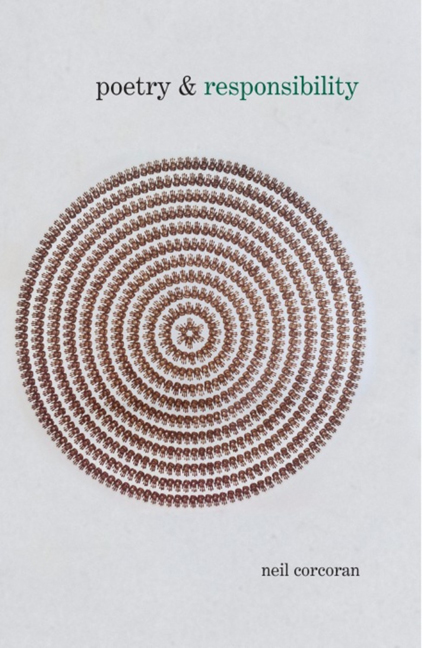Book contents
- Frontmatter
- Dedication
- Contents
- Acknowledgements
- Introduction: The Responsibilities of Poetry
- PART I
- PART II
- PART III
- 9 Everyone and I: Frank O'Hara, Billie Holiday and Modern Elegy
- 10 Poison and Cure: Ted Hughes's Prose
- 11 Back Home: Bob Dylan, Now and Then
- 12 In Retrospect: Christopher Logue, Anne Carson, David Jones
- Notes
- Index
9 - Everyone and I: Frank O'Hara, Billie Holiday and Modern Elegy
from PART III
- Frontmatter
- Dedication
- Contents
- Acknowledgements
- Introduction: The Responsibilities of Poetry
- PART I
- PART II
- PART III
- 9 Everyone and I: Frank O'Hara, Billie Holiday and Modern Elegy
- 10 Poison and Cure: Ted Hughes's Prose
- 11 Back Home: Bob Dylan, Now and Then
- 12 In Retrospect: Christopher Logue, Anne Carson, David Jones
- Notes
- Index
Summary
An impulse towards elegy, towards the melancholy attendant on a profound consciousness of mutability and transience, is often present in Frank O'Hara's poetry, which is characteristically buoyantly celebratory and delighted, even ecstatic, too. Such an impulse is one of the things he notices and admires in Jackson Pollock, on whom he wrote a short illustrated monograph in 1959. Of Pollock's ‘heroic’ painting Blue Poles O'Hara says that it is ‘a painfully beautiful celebration of what will disappear, or has disappeared already, from his world, of what may be destroyed at any moment’. Within this we can certainly hear the accents of a sensibility necessarily constrained by the Cold War moment, with its relentlessly threatening maintenance of ‘peace’ as the ‘balance of terror’; and we also remember that O'Hara was partly formed and conditioned by serving in the US Navy during the Second World War while still only in his teens. Reading American Abstract Expressionism more generally, O'Hara is defining himself and his own work too when he says that burgeoning within it is ‘the traumatic consciousness of emergency and crisis expressed as personal event, the artist assuming responsibility for being, however accidentally, alive here and now’. The art of Gorky, de Kooning and Newman is, he says, both ‘somber and joyful’: ‘somber because it does not merely reflect but sees what is about it, and joyful because it is able to exist’. This is a salutary reminder that the work O'Hara most admired in his own time, and his own work too, is art made by those who perceived themselves as survivors and were forced to recognize the fragility of human life in the face of potential nuclear disaster.
In O'Hara the elegiac impulse is notably an element of what he famously calls in ‘Getting Up Ahead of Someone (Sun)’ his ‘I do this I do that’ poems.
- Type
- Chapter
- Information
- Poetry & Responsibility , pp. 137 - 150Publisher: Liverpool University PressPrint publication year: 2014



